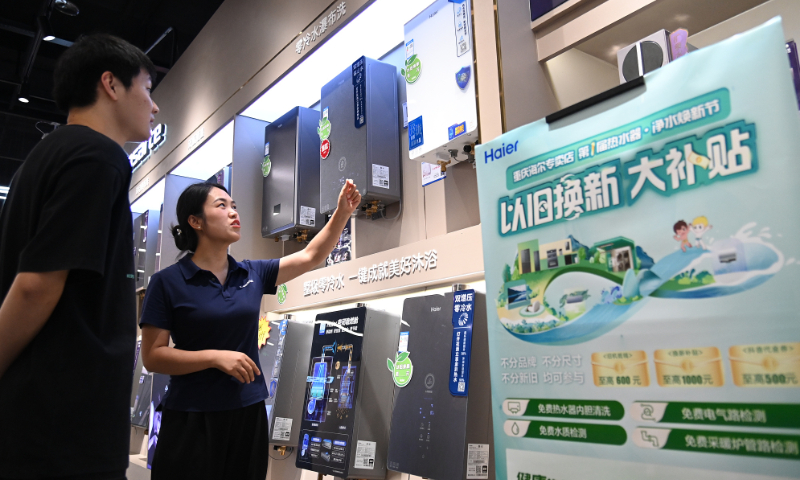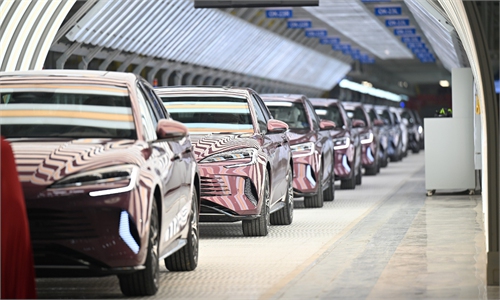
A staff member introduced consumers to a trade-in program for smart home appliances at a home appliance store located in Chongqing's Shapingba district on July 11, 2024. Photo: VCG
Multiple localities in China have announced that they will extend trade-in subsidy policies in 2025 in an effort to boost consumption.
On Thursday, the commerce department of South China's Hainan Province said in a notice on its official WeChat account that starting from January 1, 2025, Hainan will extend trade-in subsidies for home appliances, home decoration and furnishings, as well as policies for the retirement and replacement of automobiles, automobile trade-in and subsidies for the trade-in of old electric bicycles.
Over 10 Chinese localities including Central China's Hunan Province, East China's Jiangsu Province, Southwest China's Guizhou Province and Shanghai Municipality have announced the extension of trade-in policies through 2025, according to data compiled by the Global Times as of Thursday.
Wang Peng, an associate research fellow at the Beijing Academy of Social Sciences, told the Global Times on Thursday that the extension of trade-in policies across multiple regions in 2025 is expected to further boost consumer spending.
The announced policies cover a wide range of products, including home appliances and automobiles, with substantial subsidy amounts. Several regions have broadened subsidy eligibility categories based on local consumer preferences and market demands, enhancing choices for consumers.
For instance, trade-in subsidies starting on January 1, 2025 in Central China's Hubei Province expanded eligible smart appliance categories from eight to 12, adding 77 new items, with substantial subsidy amounts - up to 2,000 yuan ($274) for a single item, according to the Hubei Daily.
The 12 major categories include air conditioners, televisions, refrigerators and washing machines, while the new items encompass various products such as portable chargers, printers, cameras, pet feeders and hair dryers, according to the report.
Wang said that the trade-in policies have played a crucial role in stimulating consumption by directly lowering purchase costs and enhancing consumer purchasing power.
"This policy encourages more consumers to buy new appliances, thereby driving sales growth in the home appliance market. Additionally, the policy facilitates consumption upgrades, which in turn supports the transformation and upgrading of the home appliance industry," Wang added.
In 2024, a total of 150 billion yuan raised through ultra-long special treasury bonds has already been allocated to local governments to support the trade-in program, the Xinhua News Agency reported.
The effects of this policy are evident in the rising expenditure on home appliances, automobiles and other goods, with November home appliance and car sales up by 22.2 percent and 6.6 percent respectively, according to the National Bureau of Statistics.
Global Times

